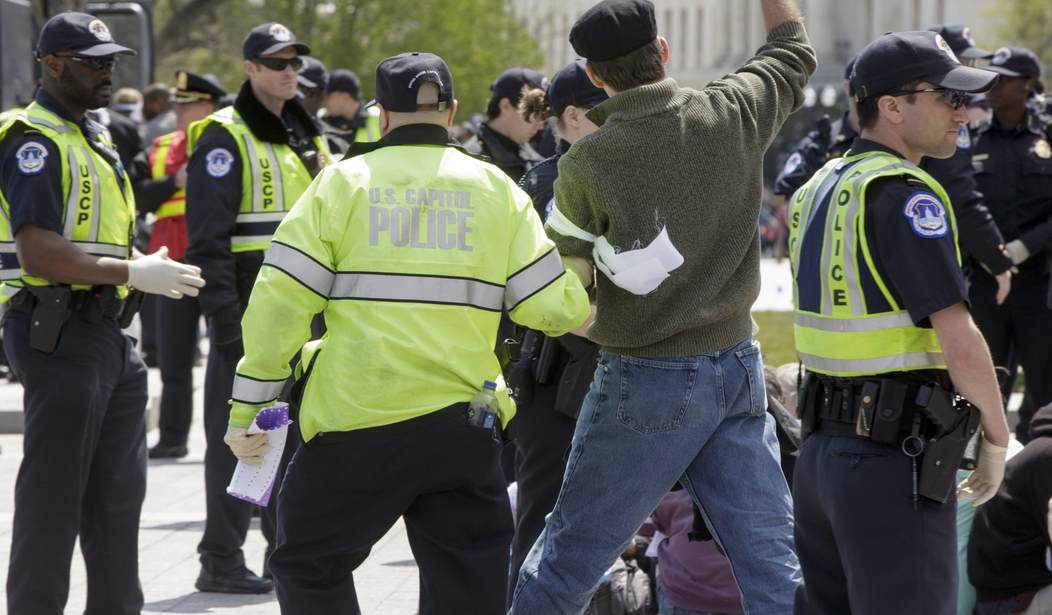The ACLU spread the word this week that police officers in D.C. would be required to have their body cameras turned off during the potentially violent Inauguration Day protests, but sources inside the Metropolitan Police Department (MPD) say otherwise.
According to Blue Lives Matter’s street-level police sources within the department, “a message went out to all officers informing them to keep the cameras on in order to to film any violations that may occur.”
If questioned, the police officers were instructed to make it clear that they were legally recording and the Metropolitan Police Department has no interest in using the recordings to identify peaceful protesters.
In a statement from DC Chief of Staff Matthew Bromeland, he advised, “With regard to this year’s Inaugural events, MPD members equipped with a BWC will be required to activate the cameras in accordance with our policy and the law. Our mission is to ensure anyone wishing to peaceably exercise their First Amendment rights within the District of Columbia has a safe environment to do so, absent legal restrictions relating to the time, place, and manner of such activity. MPD’s use of BWC’s at First Amendment activities is not for the purpose of identifying and recording those persons present that are lawfully expressing protected speech, but rather it serves as an accountability tool for MPD management with respect to ensuring the proper conduct of members and the appropriate handling of policing functions at the scene.”
Earlier this week, Monica Hopkins-Maxwell of the D.C. branch of the ACLU told reporters that “the police shouldn’t be able to surveil First Amendment activity.” She argued that there were privacy concerns with the availability of body cameras. “Who looks at that data? What’s that data used for?” she asked.
After receiving a media backlash for telling police that their cameras would have to be turned off, the ACLU wrote on its website:
It’s not an ACLU “demand,” it’s actually DC law. True, the ACLU of DC supported and encouraged adoption of that law, but the wider District of Columbia community as represented by its city council agreed with us.
Here is what the law in question says:
MPD officers may record First Amendment assemblies for the purpose of documenting violations of law and police actions, as an aid to future coordination and deployment of law enforcement units, and for training purposes; provided, that recording First Amendment assemblies shall not be conducted for the purpose of identifying and recording the presence of individual participants who are not engaged in unlawful conduct.
As you can see, it doesn’t say what the ACLU has been fraudulently claiming it says.
The law clearly allows officers to have their body cameras on at the protests — just not for the purposes of identifying protesters engaged in lawful activity.
As Blue Lives Matter explains, police officers at the DisruptJ20 protests would be recording to identify people involved in unlawful activity and to document police actions.
The focus here is all on the actual purpose of the recording. If the intent of the police department is not to record legal protesters with the intent of identifying them, then it’s legal for the officers to have their cameras on.
The way the law is written, it’s all based on the intent of the police department at the time they make the recording. If the department makes the recording with the intent of using the footage to only identify criminals, then all of the body cameras can be on.
Thank goodness common sense won the day here. Police will be ready to step in to separate protesters from Trump supporters at “any sign of unrest,” according to Reuters.
More than 900,000 people are expected to flood the capitol tomorrow, including more than 250,000 protesters.
About 28,000 security personnel, miles of fencing, roadblocks, street barricades and dump trucks laden with sand are part of the security cordon around 3 square miles (almost 8 square km) of central Washington.









Join the conversation as a VIP Member